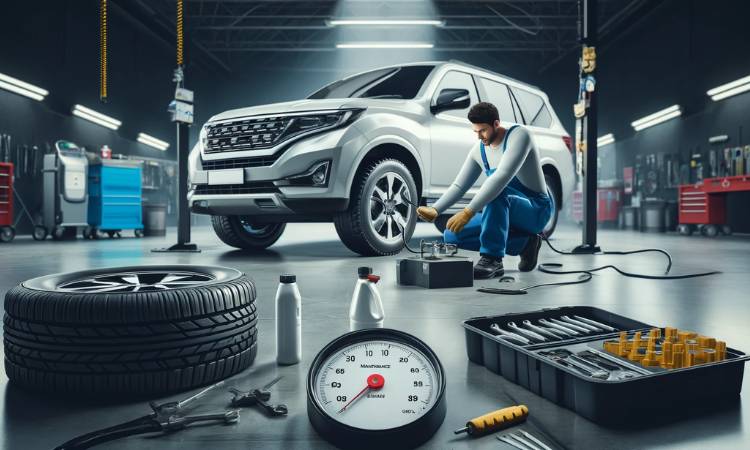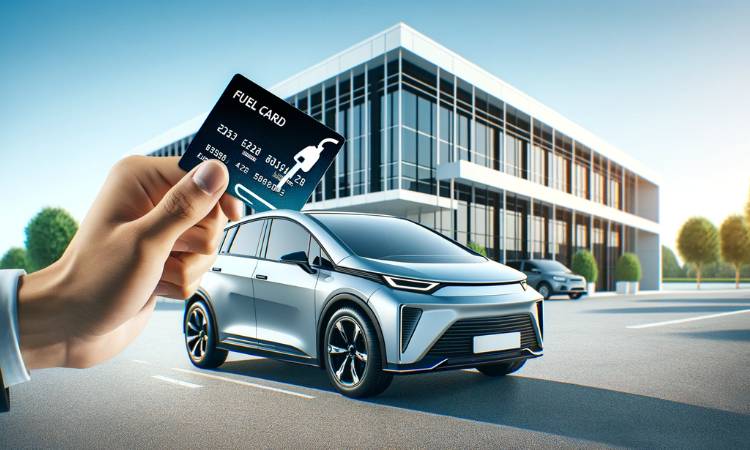Effective fuel management is crucial for businesses that rely on vehicle fleets. By optimizing fuel use, businesses can significantly reduce operating costs, enhance efficiency, and contribute to the environment. Here are five ways fuel management can help save your business money.

5 Ways Fuel Management Can Save Your Business Money
1. Regular Vehicle Maintenance

Regular maintenance is essential for keeping your fleet in top condition and ensuring fuel efficiency. Servicing your vehicles regularly helps identify and fix issues that may reduce fuel efficiency.
Oil changes keep the engine running smoothly, and replacing air filters improves airflow to the engine, enhancing fuel efficiency. Proper tyre maintenance, such as keeping tyres inflated and aligned, reduces rolling resistance and fuel consumption. Proactive maintenance helps address minor issues before they become major problems, preventing costly repairs and downtime.
Also, regular engine tune-ups are vital. They ensure that the engine’s timing is correct, the spark plugs are firing properly, and the fuel injectors are clean. All these factors contribute to optimal engine performance and fuel efficiency. Ignoring these routine checks can lead to decreased fuel economy and increased emissions, costing your business more in the long run.
2. Promoting Efficient Driver Behavior

Driver behavior has a significant impact on fuel consumption. Training drivers to adopt fuel-efficient driving habits can lead to substantial savings. Avoiding idling consumes fuel without moving the vehicle, leading to waste.
Smooth acceleration and gentle braking reduce fuel consumption and wear on the vehicle. Maintaining moderate speeds improves fuel efficiency as high speeds increase fuel consumption due to air resistance.
Implementing driver training programs can educate your staff on best practices for fuel-efficient driving, and regular feedback can reinforce these practices.
Moreover, the use of telematics systems can monitor driver behavior in real-time. These systems provide data on driving habits, such as harsh braking, rapid acceleration, and excessive idling.
By analyzing this data, fleet managers can identify areas where drivers can improve and provide targeted training. Incentive programs can also be effective, rewarding drivers who consistently demonstrate fuel-efficient driving behaviors.
3. Optimizing Routes

Efficient route planning is another effective strategy for reducing fuel consumption. Using GPS and route optimization software helps find the shortest and least congested routes, reducing travel time and fuel usage.
Scheduling deliveries during off-peak hours can reduce idling and stop-and-go driving. Regularly reviewing and adjusting routes based on traffic patterns and delivery needs helps maintain efficiency and avoids congestion, further optimizing fuel use.
Route optimization software not only helps in finding the shortest routes but also considers traffic patterns, road conditions, and even weather forecasts to ensure the most efficient path is taken.
This technology can significantly reduce the number of miles driven, which directly correlates to fuel savings. Additionally, planning routes that allow for multiple deliveries in one trip can maximize efficiency and reduce overall fuel consumption.
4. Efficient Load Management

Proper load management ensures that vehicles are not overburdened, which can lead to higher fuel consumption. Avoiding overloading is crucial, as overloaded vehicles require more fuel to operate.
Ensuring even weight distribution helps maintain balance and reduces the effort required to move the vehicle. Using load management software ensures vehicles carry optimal loads without overloading, saving fuel and extending the vehicle’s lifespan.
Effective load management also involves planning the order in which deliveries are made. By strategically loading the vehicle so that the first deliveries are easily accessible, drivers can reduce the amount of time and fuel spent unloading and reloading. This practice not only saves fuel but also improves delivery times and customer satisfaction.
5. Investing in Fuel Efficient Vehicles and Fuel Cards

Modernizing your fleet with fuel-efficient vehicles and utilizing fuel cards can provide long-term savings. Investing in newer, more fuel-efficient vehicles, such as hybrids or electric models, can significantly reduce fuel consumption.
While the initial investment may be higher, the long-term savings in fuel costs and maintenance are substantial. For example, the BPCL-SBI Credit Card offers discounts on fuel purchases and helps track fuel usage, providing detailed reports on consumption patterns and identifying areas for improvement.
They also reduce the risk of unauthorized purchases and simplify expense management.
Electric and hybrid vehicles are becoming increasingly popular due to their lower fuel consumption and reduced emissions. Although these vehicles may have a higher upfront cost, the savings on fuel and maintenance over the vehicle’s lifetime can be significant.
Additionally, many governments offer incentives and rebates for businesses that invest in green technology, further offsetting the initial costs.
Conclusion
Implementing effective fuel management strategies can greatly benefit businesses by reducing operating costs, enhancing efficiency, and promoting environmental sustainability.
Regular vehicle maintenance, promoting efficient driver behavior, optimizing routes, managing loads efficiently, and investing in fuel-efficient vehicles and fuel cards are key practices that can lead to substantial savings. By adopting these strategies, businesses can improve their bottom line while contributing to a greener future.
In conclusion, fuel management is not just about saving money; it’s also about creating a sustainable business model that benefits both the company and the environment.
By focusing on these five key areas, businesses can achieve significant cost savings, reduce their carbon footprint, and enhance their overall operational efficiency.
Source link
All Materials on this website/blog are only for Learning & Educational purposes. It is strictly recommended to buy the products from the original owner/publisher of these products. Our intention is not to infringe any copyright policy. If you are the copyright holder of any of the content uploaded on this site and don’t want it to be here. Instead of taking any other action, please contact us. Your complaint would be honored, and the highlighted content will be removed instantly.

